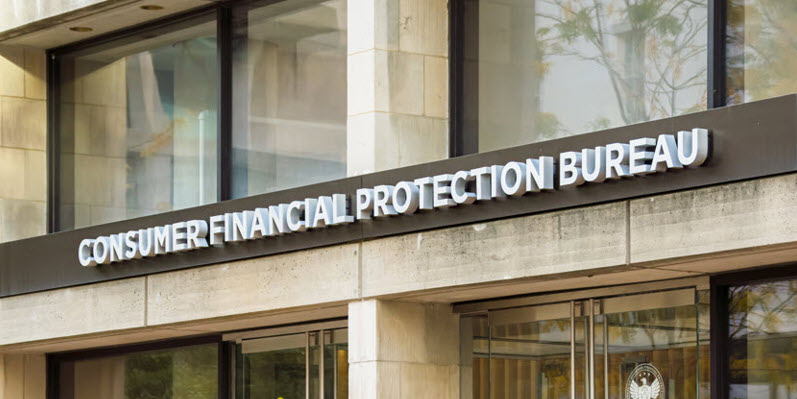On April 22, the Consumer Financial Protection Bureau (CFPB) formally requested to withdraw as a plaintiff in the ongoing lawsuit CFPB v. Credit Acceptance Corporation, filed in the U.S. District Court for the Southern District of New York. While the CFPB steps back from the case, the New York Attorney General continues to pursue the matter on behalf of state consumers.
The move marks a notable shift in the bureau’s enforcement posture under current leadership, reflecting a broader trend away from litigation that pushes the boundaries of the agency’s statutory authority.
Background of the Case
The lawsuit originally centered on allegations that Credit Acceptance’s business model encouraged car dealers to overprice vehicles and attach costly add-on products. The CFPB introduced a concept it called a “cash price proxy”—made up of the consumer’s down payment plus the amount the finance company paid for the contract—to argue that dealers were charging consumers a “hidden finance charge” when contracts were sold to lenders at a discount (commonly referred to as an assignment discount).
Importantly, the CFPB did not claim that this “cash price proxy” was ever offered to consumers, nor did it allege that Credit Acceptance directly deceived or abused consumers. Instead, the bureau claimed that Credit Acceptance “allowed and incentivized” such practices by failing to impose stricter controls on car dealers—despite the lack of any statute or regulation requiring such oversight by third-party finance companies.
Legal Tensions
Critics, including U.S. Representative Andy Barr, R-Ky., chair of the House Financial Services Subcommittee on Financial Institutions, had raised concerns over the CFPB’s strategy. Barr argued that the agency was attempting to impose sweeping changes on the auto finance industry through litigation against a single company, bypassing the traditional regulatory or legislative process.
The case also raised eyebrows for its reinterpretation of the Truth in Lending Act (TILA) and Regulation Z, long-standing frameworks that govern consumer credit disclosures. Since 1981, official interpretations of Regulation Z have clearly stated that assignment discounts are not considered finance charges and therefore do not need to be disclosed as such. Moreover, the CFPB’s own founding statute—the Consumer Financial Protection Act—explicitly excludes auto dealers from the agency’s rulemaking and enforcement authority. Nevertheless, the bureau’s complaint attempted to influence dealer behavior by targeting a financing partner instead.
What’s Next?
The CFPB’s withdrawal appears to reflect a broader shift in enforcement philosophy, emphasizing statutory clarity and due process. The bureau has recently stated its intent to focus on clear legal mandates, prioritize enforcement efforts around direct threats to consumers, and avoid legal disputes involving questionable jurisdiction.
Although the federal agency is no longer participating, the case will proceed with the New York Attorney General as the sole plaintiff, focused exclusively on potential harm to New York consumers.
This step aligns with the CFPB’s renewed commitment to use established consumer protection statutes—like TILA—as its primary enforcement tools, rather than pursuing de facto pricing regulations through novel legal theories or one-off litigation.
Sign Up for the Twice Monthly Newsletter
Just enter your email address at the top orange bar at:
Collection Compliance Experts – “The Power of Expertise: Oversight Perfected”
It’s that easy! Twice a month – we provide blog updates and Resources for the Collection and Industry Professional.
Your email is just for this newsletter. We never sell your information. No fee. Opt-out at any time.

Author: Jennifer Evancic
Jennifer.Evancic@ResourceManagement.com
Jennifer Evancic is a third-party auditor valued by creditors and large organizations for her knowledge in call monitoring within the collections industry. With meticulous attention to detail and a firm grasp of regulatory requirements, she ensures compliance with clients’ criteria and state and federal regulations.
Jennifer audits collections calls, ensuring they meet client-specific criteria and comply with regulations, providing valuable insights and maintaining industry standards.
Beyond her auditing responsibilities, Jennifer takes the lead in organizing and facilitating monthly call calibrations. These sessions serve as a collaborative forum where clients and their vendors come together to discuss call monitoring results and address any findings or areas for improvement. Jennifer’s guidance fosters open communication and ensures alignment between clients and vendors, driving continuous improvement in collections practices.
Jennifer stays up-to-date with compliance and industry best practices by participating regularly in peer meetings, regulatory updates and industry webinars. This keeps her informed about emerging issues and ensures she remains a knowledgeable leader in collections compliance.




